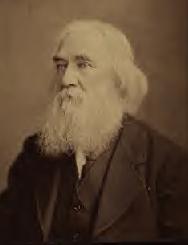I’ve recently reread A. E. van Vogt’s out-of-print 1977 novel The Anarchistic Colossus. (To the right are some of the covers that have graced the book; as was common for science-fiction novels in the 70s, none of the covers seems to have very much to do with the book’s contents. The bottom one is the most bizarrely off-target of the batch.) The title turns out to refer equally to the anarchistic society depicted in the story, to the human brain, and to the universe as a whole.
 The society – its rules the result of a kind of compromise between capitalist and socialist anarchists (called Caps and Co-ops in the book; the former are egoistic, the latter sentimental) – avoids all need for human retaliatory force by relying instead on a worldwide system of ubiquitous computerised monitors that are able to detect symptoms of aggressive emotions and instantly incapacitate anyone who behaves aggressively. The result is the closest thing to the Hobbesian-Randian dream of an automatic “final arbiter” independent of the human wills it constrains.
The society – its rules the result of a kind of compromise between capitalist and socialist anarchists (called Caps and Co-ops in the book; the former are egoistic, the latter sentimental) – avoids all need for human retaliatory force by relying instead on a worldwide system of ubiquitous computerised monitors that are able to detect symptoms of aggressive emotions and instantly incapacitate anyone who behaves aggressively. The result is the closest thing to the Hobbesian-Randian dream of an automatic “final arbiter” independent of the human wills it constrains.
There are ways of gaming the system, of course. One is to modify the computers; the other is to modify oneself, training oneself to commit aggression while suppressing the emotional accompaniments. But pulling off either method successfully turns out to be tricky. (It’s never clearly explained why the Techs, the engineers in charge of maintaining the computer system, don’t reprogram it for their own purposes. Evidently they are committed to the status quo, whether from ideological conviction or from fear of one another.)
In an introduction, van Vogt suggests that this kind of mechanised system is the only way that anarchy could work: “what kind of technology would be required to maintain a system of anarchism among all those misbehaving human beings around us? No government. No police. Nobody minding the store. The entire operation would, of course, have to be automatic.” Yet on the other hand he does have one of his characters remark that “[a] segment of this society believes that the careful use of language all by itself, without any help from the [computers], is all that anarchism needs,” which seems like a nod to van Vogt’s own Null-A trilogy (which is worth a read, if you can get past the fact that van Vogt uses the term “Aristotelian logic” to mean a habit of thinking in terms of false dichotomies, apparently unaware that transcending false dichotomies is one of the central themes of Aristotle’s entire philosophy). The author talks a bit more about this here.
The economic system seems to allow private property and private enterprise (presumably a Cap contribution), but also a requirement that anyone willing to work must have access to sustenance or the means of obtaining it (presumably a Co-op contribution). We don’t see much detail as to how this all works, however – just a few enigmatic glimpses. Passengers on a bus can choose either to pay the fare or to take turns driving the bus. An automobile driver who fails to put money in a parking meter will find that his vehicle automatically deactivates itself. (But what would happen if someone started producing cars that didn’t do this?) Whenever someone invents a new, not-obviously-aggressive way of annoying other people, the Techs have to reprogram the computers to recognise and react to the new behaviour. (So is it really the Techs, not the computers, who constitute the “final arbiter”?) Parents can authorise their teenaged sons’ conscription into the military (which seems un-anarchistic?), but it’s unclear just how the military operates, since the soldiers seem free to wander off whenever they like – which rather defeats the point of conscription.
The plot is a complex tangle, but the central action concerns an attempted alien assault on the anarchist society. The book poses the question: how can the society as described here defend itself from bombardment by orbiting hostile spacecraft, when all use of violence has been delegated to machines that do not exist on those spacecraft? The answer is a SPOILER so I’ll hide it in the comments section.
Incidentally, I can’t help wondering whether the one-soldier-for-a-whole-society concept in John Wright’s Golden Age trilogy was inspired by a similar (not identical) notion in van Vogt’s book.
Addendum:
I’ve added the paragraph I accidentally left out.
 appeared in Benjamin Tucker’s anarchist journal Liberty, is much more obscure; it was omitted (like most of Spooner’s periodical work) from the Collected Works, and indeed has never (so far as I can determine) been reprinted anywhere else. Now at last I am happy to announce that it is available in the Molinari Institute online library.
appeared in Benjamin Tucker’s anarchist journal Liberty, is much more obscure; it was omitted (like most of Spooner’s periodical work) from the Collected Works, and indeed has never (so far as I can determine) been reprinted anywhere else. Now at last I am happy to announce that it is available in the Molinari Institute online library.